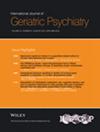Attitudes and Preferences Towards Screening for Dementia From the Perspectives of Healthcare Professionals: An Updated Systematic Review
Abstract
Objectives
Approximately 55 million people are living with dementia globally. Global policies have suggested that screening for dementia in asymptomatic populations may support risk-reduction approaches to stem the rising numbers of people with the condition. A previous systematic review of literature up to 2012 indicated that healthcare professionals negatively view dementia screening; however, the research and clinical landscape has made significant advances in the last decade. Therefore, the aim of this systematic review is to re-examine the attitudes and preferences of healthcare professionals since 2012 regarding primary and community care-based dementia screening.
Methods
This review was pre-registered on PROSPERO (CRD42024531455) and followed PRISMA guidelines. Key terms relevant to the aim were input into six databases, and articles between 2012 and 2024 were considered. Titles, abstracts and full texts were independently screened by two reviewers. Articles were eligible for inclusion if peer-reviewed, written in English, considered primary or community care-based dementia screening and included healthcare perspectives from either quantitative or qualitative methods.
Results
From 18,732 identified titles, 19 articles were included in this review. Seventeen studies presented perspectives from primary care practitioners. Key findings suggest that healthcare professionals have mixed views regarding their willingness to conduct dementia screening, although limited studies suggest an interest in engaging in dementia risk reduction. Common influences on perspectives included knowledge, skills and training; resource provision; access to a dedicated screening service and referral pathways; and stigma.
Conclusions
These findings suggest that healthcare professionals' perspectives and resource are not aligned with international policies promoting dementia screening. When considering implementing evidence-based dementia screening in the future, a dedicated screening service is recommended.


 求助内容:
求助内容: 应助结果提醒方式:
应助结果提醒方式:


